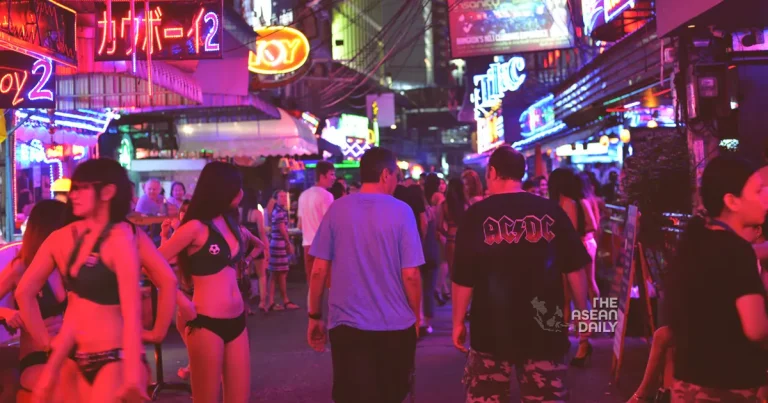24-12-2023 (BANGKOK) Thailand’s nightlife venues are witnessing an uptick in customer spending following the recent extension of operating hours from 2 am to 4 am. The government’s move aims to breathe life into the post-pandemic tourism sector and infuse vitality into the economy. However, analysts caution that the impact may not be substantial, as the nighttime industry’s contribution to the country’s gross domestic product (GDP) is relatively modest, and a decline in spending from the significant Chinese tourist group adds another layer of complexity.
The extended operating hours have also raised concerns about an increased risk of accidents related to drink-driving in Thailand, a nation where road accidents claimed 17,000 lives and left 15,000 others with disabilities last year alone, according to the World Health Organization (WHO).
Eugene Tan, an economist at Moody’s Analytics, acknowledged the potential benefits for businesses but expressed skepticism about the extension significantly boosting tourism income. He pointed out that the night industry contributes only about 1% to Thailand’s GDP, translating to roughly 5% of tourism receipts.
The extended hours are part of a new rule by the Ministry of Interior that came into effect on December 15. It applies to licensed night-time businesses, including pubs, bars, discotheques, karaoke venues, and massage parlors in selected tourist areas, namely Bangkok, Chon Buri, Chiang Mai, Phuket, and the Samui island in Surat Thani, as well as those in legally-registered hotels nationwide.
The rule also permits pubs and bars across the country to stay open until 6 am on New Year’s Day, as the government makes a final push to boost tourism in 2023. Thailand aims to attract 28 million foreign tourists, generating 1.4 trillion baht (US$40 billion) in revenue by the end of 2023.
However, as of December 17, data from Thailand’s Ministry of Tourism and Sports showed that out of 26.5 million tourists who visited the country since January 1, only 3.3 million were Chinese. The total spending of all international tourists was reported at 1.1 trillion baht.
Despite the ambitious targets, Tan deemed it “highly improbable” for Chinese tourist arrivals to exceed 4.4 million, citing uncertainties in the domestic conditions of China, caution in budgeting among Chinese tourists, and limited flight capacity.

Before the COVID-19 pandemic, China was Thailand’s largest source of international visitors, with over 11 million out of 40 million foreign visitors in 2019.
In Bangkok, 146 nightlife venues, including The Club on the popular Khaosan road, can extend their operating hours to 4 am. The Club’s assistant manager, Kanyanat Rookkhason, reported a 30% increase in customers on Fridays and Saturdays since the new rule came into effect. While the extended hours have attracted more patrons, it remains to be seen whether the increased footfall will translate into a significant rise in spending.
For Karn Liangsrisuk, owner of a restaurant and cocktail bar on Sukhumvit road, the new rule may inject more money into the economy but benefits only a select few that operate late. He suggested that instead of extending operating hours until 4 am, the government should lift the ban on the sale of alcoholic beverages between 2 pm and 5 pm to stimulate tourist spending in more places.
While the new rule introduces safety measures to prevent negative social impacts, such as drink-driving, critics argue that these safeguards are unlikely to be effectively implemented. Dr. Tairjing Siriphanich, secretary-general of the Don’t Drive Drunk Foundation, expressed concerns about pushing the burdens onto business operators and emphasized the need for a working committee to assess the social impact of the policy.
Between January 1 and December 22 this year, road accidents in Thailand resulted in 13,656 deaths and 782,316 injuries, according to the Thailand Road Accidents Data Centre for Road Safety Culture. Dr. Tairjing cautioned that the longer operating hours of night-time entertainment venues could increase the risk of road accidents, despite the positive economic impact. One day after the new rule was introduced, a foreign tourist was arrested for drink-driving, causing deaths and injuries in Chiang Mai, underscoring the need for a comprehensive evaluation of the policy’s implications.




